US using dollar dominance as a ‘stick’ to beat other nations: Journalist
By Maryam Qarehgolzou
The crippling sanctions imposed by the US on countries such as Iran and Russia have prompted them to look for ways to ditch the greenback and opt for trade in their own currencies, says a journalist.
In an interview with the Press TV website, New Delhi-based journalist and international affairs analyst, Saurabh Kumar Shahi, said the US has been using the dollar as a “stick” to beat other nations.
“What has been happening with Iran and what has been happening with Russia in terms of sanctions have scared a lot of countries. They now believe that we have given way too much power to the financial system that is controlled by the United States,” Shahi said.
“We have given them way too much power and they are using it as a stick to beat us.”
Unilateral US sanctions on Iran date back to the 1979 Islamic Revolution after the newly-formed government in Tehran severed its diplomatic ties with Washington, ending decades of subservience.
Sanctions were imposed on Iran on false accusations of weapons of mass destruction, with the US government even preventing other countries from engaging in trade with the Islamic Republic.
Iran’s peaceful nuclear energy program prompted the US and its European allies to up the ante, imposing more sanctions, alleging Iran’s ambition of developing nuclear weapons.
In 2015, a landmark nuclear deal signed between Iran and the world powers brought some sanctions relief to Iran in exchange for limiting its peaceful nuclear energy program.
However, in May 2018, the then-US administration headed by Donald Trump, unilaterally walked out of the deal and reinstated unprecedented sanctions on the Islamic Republic in breach of the multilateral accord.
Since last February, when Russia launched what it refers to as a “special military operation” in Ukraine, the US and its Western allies have imposed waves of sanctions against Moscow.
The war in Ukraine and related developments across the world have brought independent countries such as Russia, Iran and China closer as they make a concerted effort in ditching the US dollar.
“A lot of countries want what we call in diplomacy to put eggs in different baskets. You don’t put all the eggs in one basket. So that’s what is happening in the case of India,” Shahi told the Press TV website.
He, however, hastened to add that the process of de-dollarization is not a simple one.
“Because it is a very old system, at least since Second World War, and whenever such a robust system is challenged, it has all the intrinsic strength you have to overcome,” he remarked.
He further stated that reform of the dollar-centered international monetary system may be less challenging for net exporters such as Iran, Russia and China.
“These countries are net exporters, they either sell petrochemicals or they are manufacturing giants like China, which means that other countries have a trade deficit with these countries, so they can pay them in whatever currency they want,” Shahi said.
“For example, if you pay a third country in Yuan, the third country can buy something from China in Yuan, so that way you can do deals.”
India, Shahi said, is a net importer.
“If India is buying $35 billion worth of petroleum from Russia and wants to pay in rupees, what will Russia do with the $35 billion worth of Indian rupees? Russia’s import from India is limited to rice and some other food items.”
The total import would be one-tenth of what Russia is exporting to India, he said, adding that it is best for the two countries to settle trade in a third currency like Yuan.
“Because India is also buying stuff from China; Russia is also buying stuff from China, so they can use that currency to pay China, but Russia cannot use the Indian rupees to pay any country because the trade deficit is huge.”
He also cited a recent agreement between India and the United Arab Emirates (UAE) that will allow the two sides to settle trade in local currencies instead of dollars.
During India’s Prime Minister Narendra Modi’s visit to UAE in mid-July, they signed a memorandum of understanding to establish “a framework for the use of local currencies for transactions between India and the UAE,” according to the Indian central bank.
“We would like to see how the deal emerges in a practical form in days to come. The deal itself means nothing. Implementation is everything. Now India buys a lot and a lot of stuff from UAE but also exports a lot of stuff to UAE. So, in the case of UAE, de-dollarization can happen,” Shahi said.
“India is at least doing this with countries where it has a trade, not a deficit. It is not an easy thing, but at least an effort has been made.’
Hamas thanks Iran, Resistance Front following achievement of ceasefire in Gaza
'Capitulation': Israeli officials and media concede Gaza defeat as truce unfolds
'Gaza has won': Social media users react to ceasefire with mix of relief, joy
Iran seeks South Korea’s assistance for AI, fiber-optic projects
VIDEO | Iran's 'Eqtedar' (Power) maneuver
Israel hits HTS military target in Syria for 1st time since fall of Assad
VIDEO | Press TV's news headlines
Israel has slaughtered 13,000 students in Gaza, West Bank


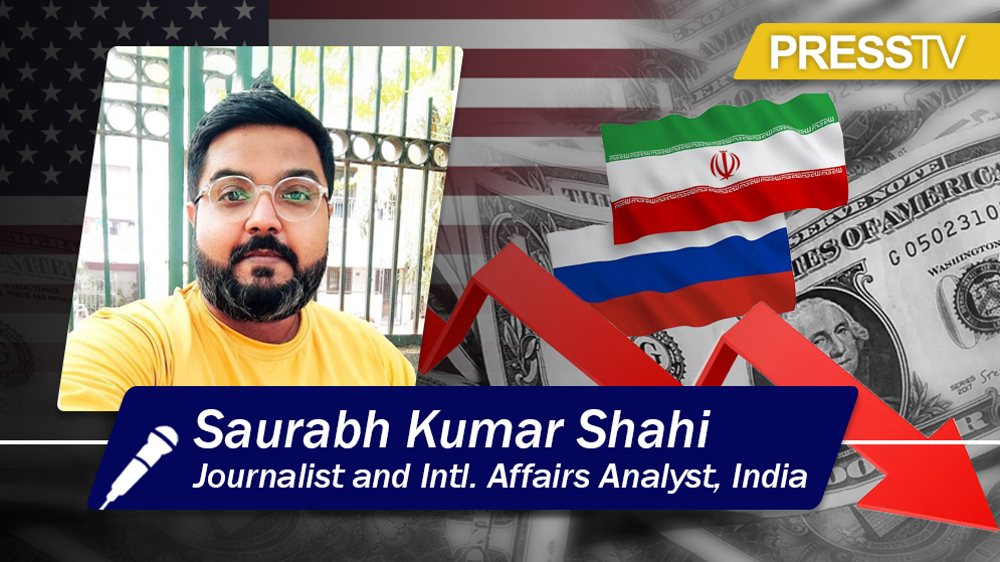
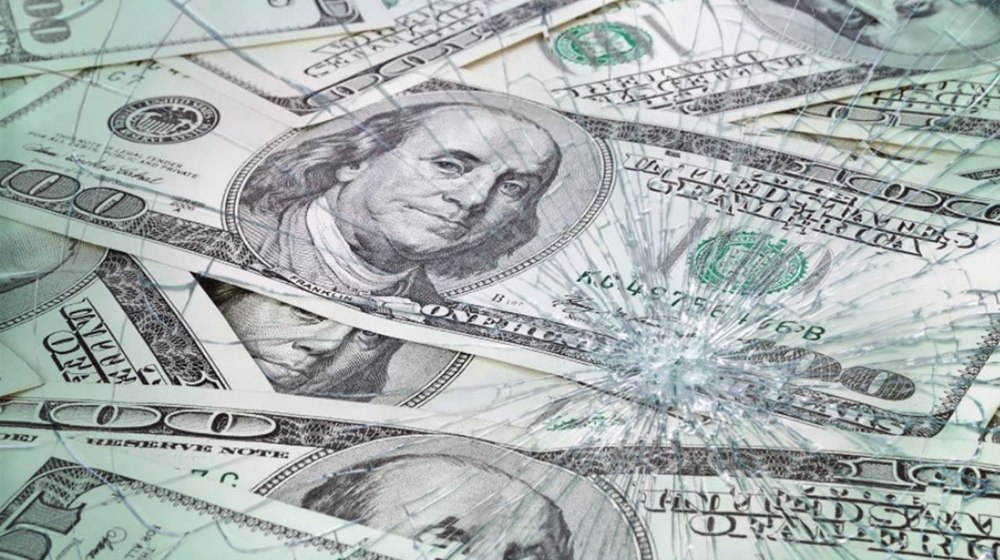






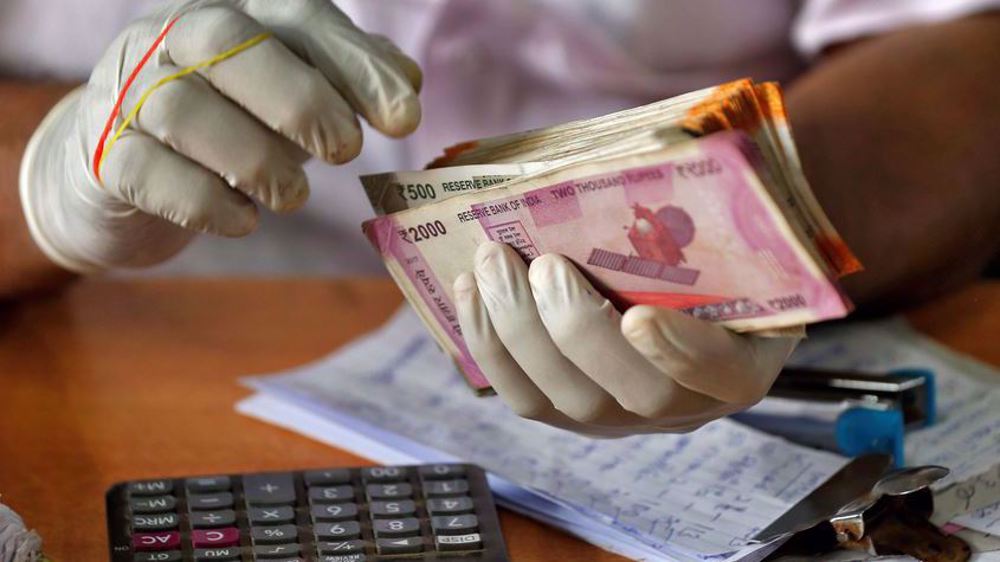
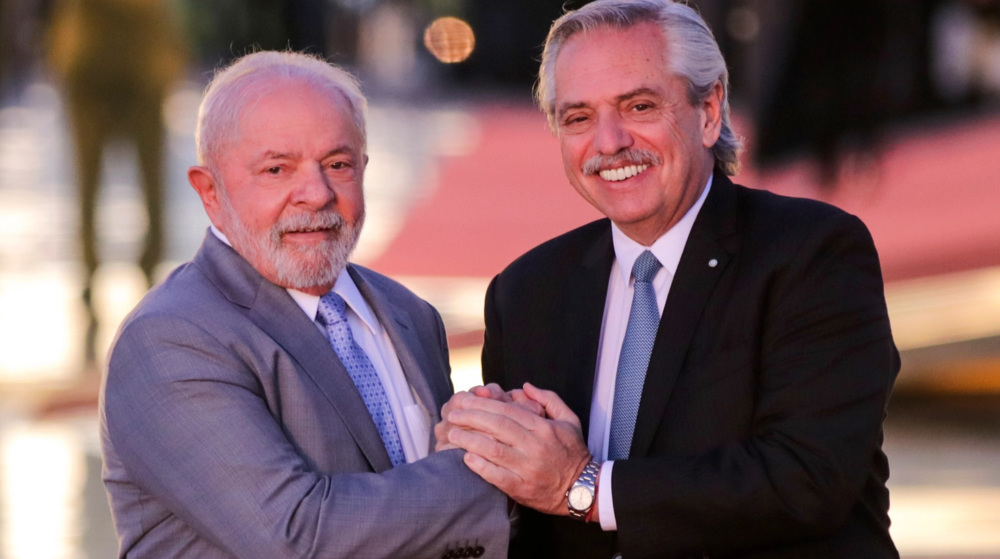
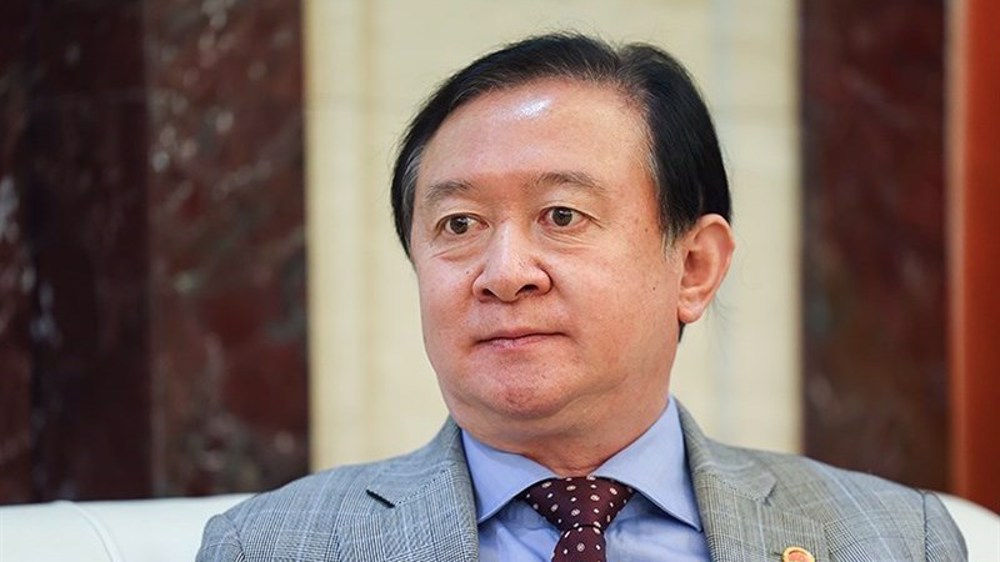
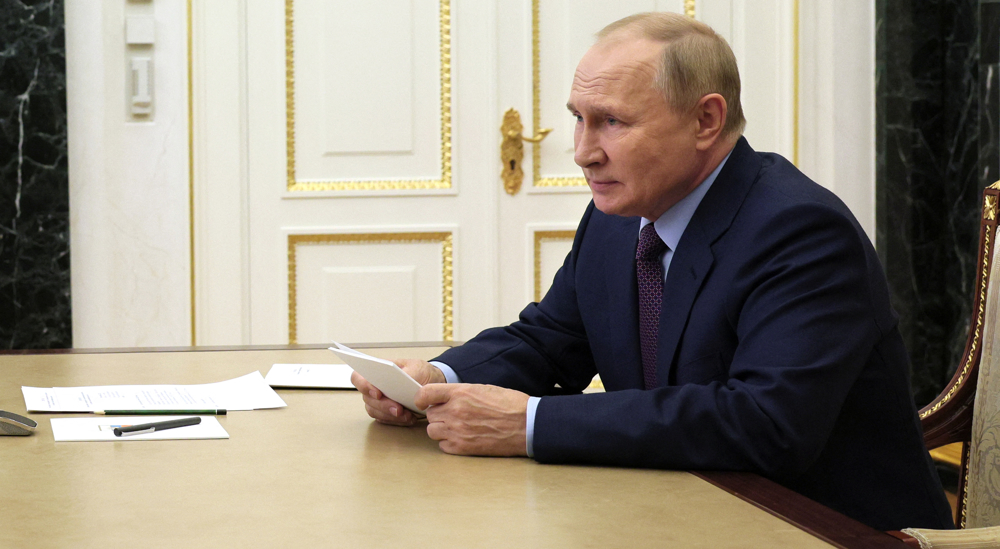


 This makes it easy to access the Press TV website
This makes it easy to access the Press TV website